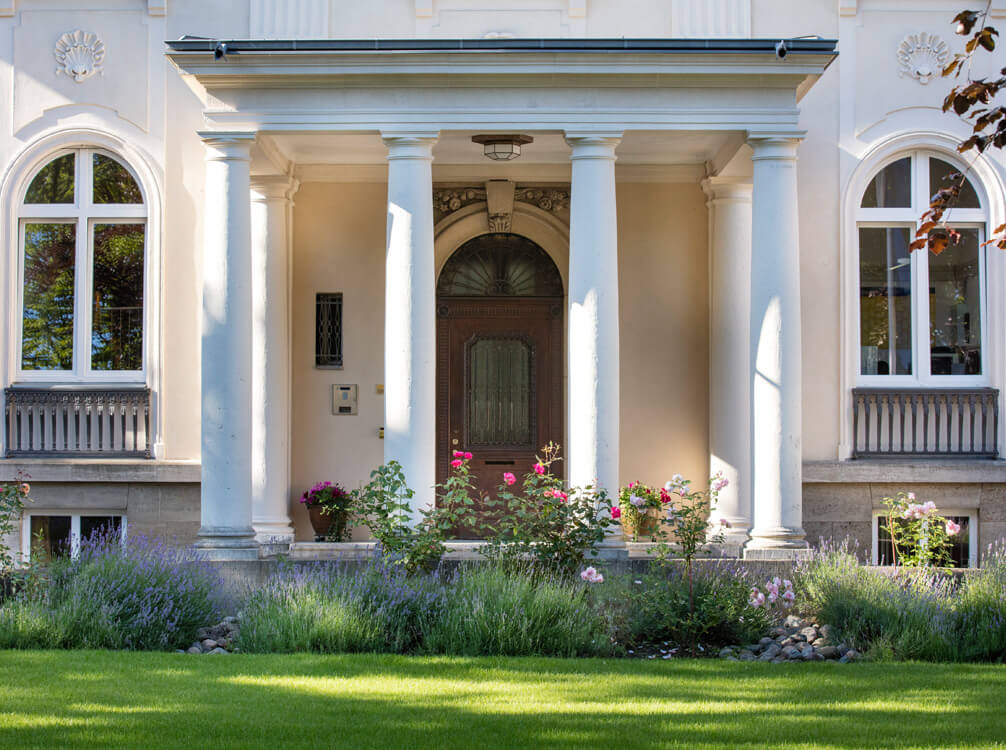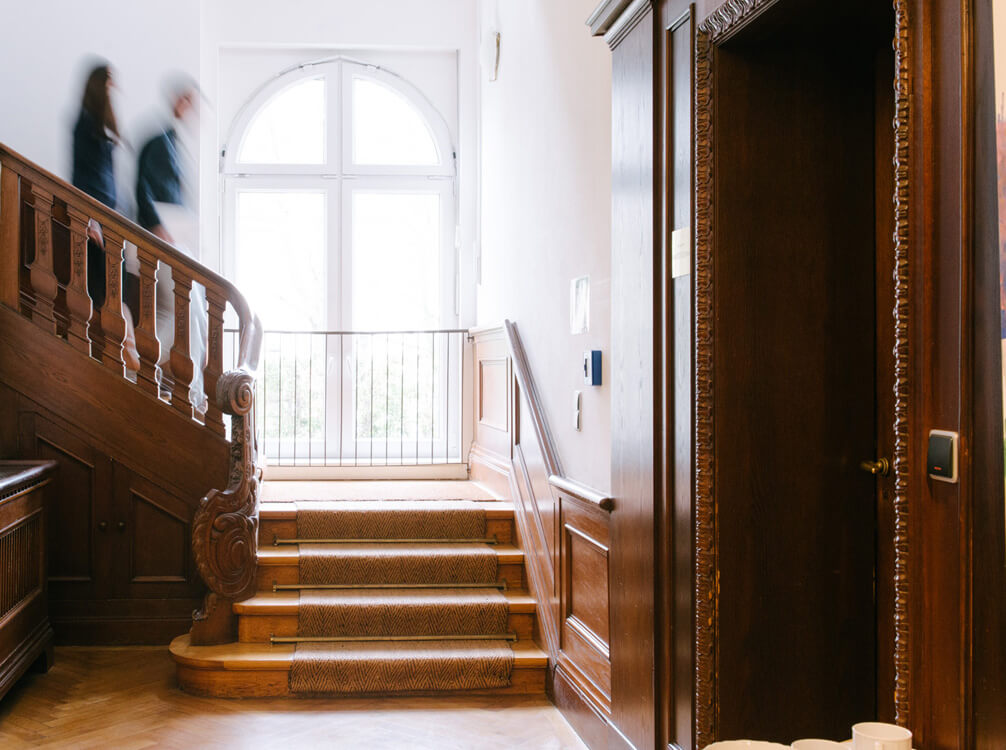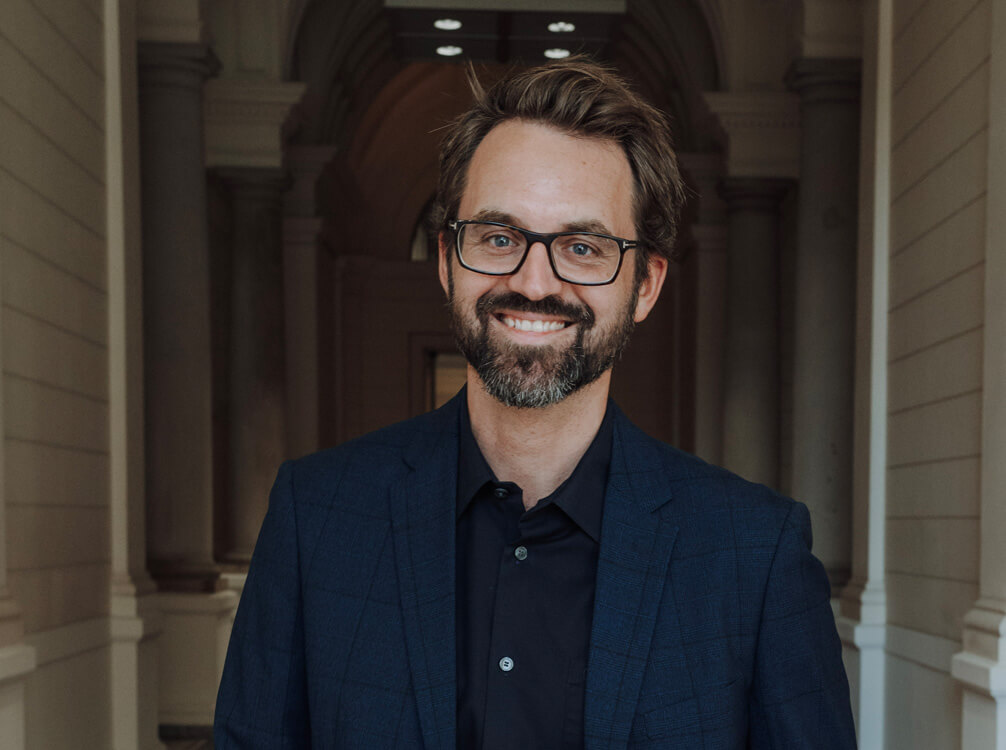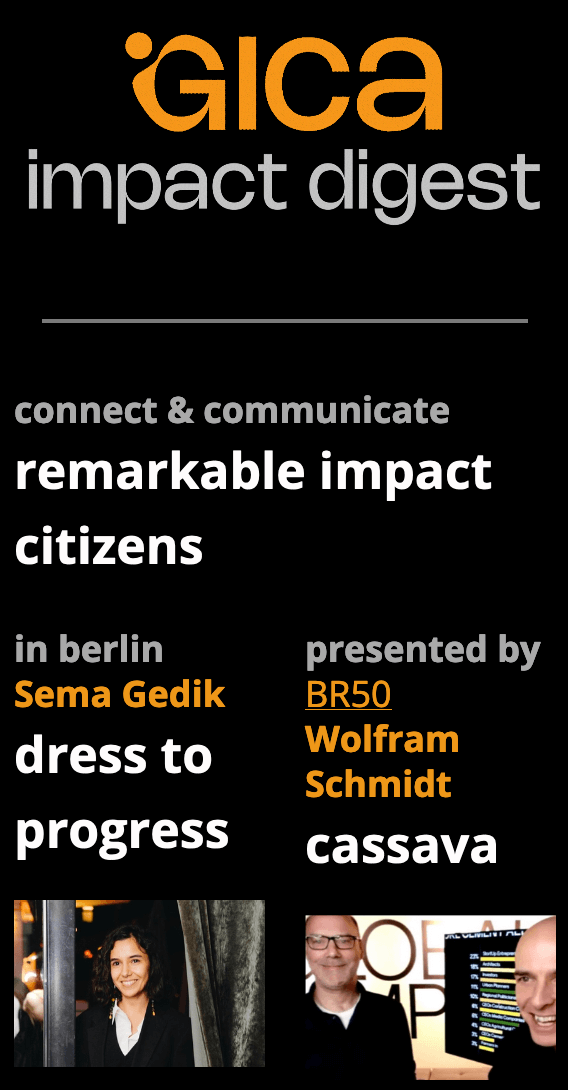GICA: The impact economy is growing rapidly. Currently, we have three major economic power centers in the world: Asia, the USA, and Europe. What future does Europe have in the global game of sustainability development?
Europe has a great chance to become a leader in the development of true sustainability. Christian Johann
Christian Johann: Europe is quite ahead in understanding the need for sustainability. Unfortunately, we are not yet at the forefront – neither mentally nor in implementation. However, Europe has a great chance to become a leader in developing true sustainability. We have seen in the past that we can solve problems well because Europe is a structure marked by great diversity. Many people are in a small area with various cultures, ideas, languages, and nations with different histories. This is unique in the world.

GICA: Really? Europe as an example of harmony and peace in the world?
Christian Johann: Yes, because this is only found in Europe: A history marked by conflict and war, almost a continuous culture of war, which we have completely overcome internally. There has been no war between countries belonging to the EU for 80 years. This is extraordinary in terms of history. While the answer to World War I was World War II, the answer to World War II was not “Third World War,” but “European Union.” This means there is potential, a tradition of collectively overcoming conflicts and problems. We must now use this tradition to transform into a sustainable society.
GICA: So you’re saying, in summary, that Europeans have learned to turn disasters into constructive solutions. And that’s precisely what we have now: a climate disaster developing in slow motion. And you say Europeans are well-positioned because they have learned to build a standard solution from different interests. Conclusion: As the EU, we are well trained. Correct?
Christian Johann: Yes, exactly. From many different perspectives, better solutions for everyone are likely to emerge than if one party decides everything from above. Diversity brings about innovation. And we need innovations now to find or live with climate change solutions.

GICA: So Europe should be super innovative. But Europe is not so innovative: We have no European Google, iPhone, or Netflix.
Christian Johann: That’s true. We are not technologically but politically advanced. Depending on the perspective, the EU is not a pure success story. But few state structures are, especially those for which there are no historical precedents. The EU has achieved most of the goals for which it was conceived, without a war, without anyone saying, “I will now subjugate you all, and we will be a united European kingdom.” Europe has achieved the miracle of bringing together the most diverse, controversial positions over a long period. And it is precisely these political innovations that we now need if we want to counter climate change and rule by force.
GICA: And now we come to the question of all questions. Will we be able to develop sustainable societies across the planet quickly enough? We need to rebuild our entire global economy. This will only be possible with technological innovations. And you just said the EU is great when it comes to politics and big agreements but not so great at technological innovations.
The right political framework is the basis for a new kind of economy. And Europe has potential here.
Christian Johann: Yes, but both are also interconnected. The foundations for a sustainable economy and a prosperous society are laid by political decisions. It doesn’t matter how much fuel you and I save or how many plastic bags we forgo. It doesn’t matter whether we like to use climate-neutral technologies. We will only meet the 1.5-degree target if there are clear rules and bans that apply to everyone in Germany, Europe, or even worldwide. The right political framework is the basis for a new kind of economy. And Europe has potential here.
GICA: You mean we will manage this transformation in Europe? Or won’t the USA overtake us because they take stricter action and are faster?
We must also be willing to elect people who want to drive change. Here, I see the most significant potential in Europe.
Christian Johann: I believe that European developments are often torpedoed because other major powers are interested in something different than the EU finding fast, joint solutions. Our strength, voluntary cooperation, is also our weakness, contradictory interests. It is, therefore, relatively easy to torpedo European agreements because we work together in a very transparent system. But in sustainability, I hope everyone is interested in Europe being united and finding good agreements. A global interplay of economy, politics, and individuals is needed. We must also be willing to elect people who want to drive change. Here, I see the most significant potential in Europe.
GICA: If I am now a young impact startup from an African country, Where should I turn? Let’s say I am in Lagos or Nairobi and must decide where to focus my energy. Where do I build my networks? Where do I go and try to meet people? Should I travel to San Francisco or Hong Kong, or should I go to Berlin? Should I bet on Europe or the USA? What would you recommend to a young founder from an African country?
Christian Johann: I would recommend investing your energies in Africa.
GICA: The company must also reach other markets, investors, development, and partners.
Christian Johann: OK, if you ask me like that, Definitely Europe. Why? Because nowhere in the world, not even in the USA, is a comparable good mix of security. Nowhere are there good prospects for your personal rights to be protected, for you to be able to develop freely, express your opinion, and live safely. If you are a founder and want to be health insured, if you like to be in control of your family planning and like to decide whom you may love and whom not, then Europe is obviously the best place. Here are the most liberal regions, cities, and people. Here, you can reconcile your life and family with your entrepreneurial and long-term planning.
GICA: What do you think of this thesis? If you want to get rich quickly, California is the right place. If you want to create impact quickly, is Europe the right place?
If your company is supposed to offer social added value, it is easier to realize this in Europe than in the USA or Asia.
Christian Johann: I can relate to that a lot. If your company is supposed to offer social added value, it is easier to realize this in Europe than in the USA or Asia. We have this unique system called the Soziale Marktwirtschaft: “You are economically successful; therefore, you contribute to the overall betterment of society.”
Sure, in the USA, you might be able to become successful more quickly. But at the same time, you also have to invest more to secure yourself and your employees. And with your wealth, you do not contribute as directly to the well-being of those around you or to the benefit of society.
In many wars, we have also learned from the many revolutions on our continent: In the long run, it is never good if only a few rule or are wealthy.
GICA: So you’re saying the middle way is right? And the middle way is Europe?
Christian Johann: Yes. This middle way, the Soziale Marktwirtschaft (social market economy), is more likely to lead to a stable political situation than if a few are rich or powerful, regardless of the vast majority of the poor. Besides the misery we have experienced in many wars, we have also learned from the many revolutions on our continent: In the long run, it is never good if only a few rule or are wealthy. If we manage to heed these lessons from the past better in the future, we are in a good position.
GICA: That’s an encouraging picture you’re painting. In a phase of humanity where we can’t go on like this and have to become more sustainable, is Europe comparatively well-positioned?
Christian Johann: Exactly – Europe is comparatively well-positioned – if we manage to achieve unity on the core issues. We agree on what security means compared to revolution, what advantages freedom of movement offers, and what costs customs borders entail. Everyone understands that.
Your dinner tastes better when you can buy Italian products in the supermarket. Your vacation and your career are more likely to lead you to exciting places if you can travel on holiday without a visa or enjoy free roaming.
Everyone understands peace.
But we also need to agree on how a sustainable society and a functioning circular economy should look in Europe quickly. For that, we need success stories and a clear picture.

GICA: And we want to tell these success stories with GICA. Thank you for your time!
Christian Johann: Thank you for this network!



